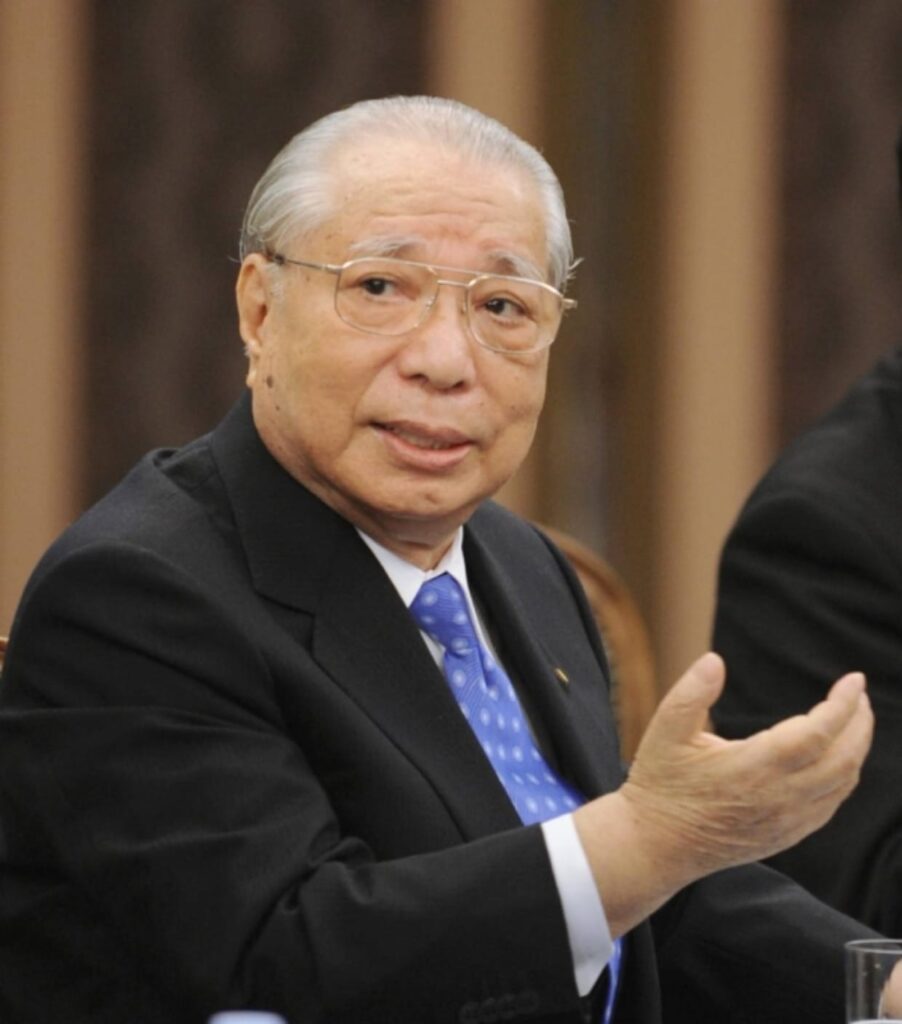Daisaku Ikeda, who helped spread Buddhist thought around the world through Soka Gakkai — Japan’s largest religious organization and an ally of the government — has died, the organization said Saturday.
Ikeda died on Wednesday evening from natural causes at age 95, Soka Gakkai said in a statement on its website.

He was the longtime spiritual leader of the lay Buddhist organization known abroad for its association with celebrities and at home for its influence on politics.
Soka Gakkai, founded in 1930, says it has 12 million members in 192 countries and territories worldwide.
Ikeda traveled to more than 50 countries for talks with well-known figures including then-Chinese leader Zhou Enlai and then-Soviet Union President Mikhail Gorbachev.
Well-known Soka Gakkai adherents include British actor Orlando Bloom, jazz musicians Herbie Hancock and Wayne Shorter and Italian soccer player Roberto Baggio.
He founded the precursor to Komeito, the Liberal Democratic Party’s junior coalition partner, in 1964.
He also founded Soka Gakkai’s umbrella organization, Soka Gakkai International, in 1975, where he served as honorary president from 1979 until his death.
Ikeda was a prolific writer, publishing a number of books on Buddhism, dialogues with intellectuals such as British historian Arnold Toynbee, and a 12-volume novel “Human Revolution.”
For years, photos of Ikeda were a common sight on advertisements in Tokyo trains for the organisation’s numerous books, magazines and other publications. But those dropped off in recent years leading to some speculation about his health and role in Soka Gakkai International.
Ikeda was not without critics, including British journalist Polly Toynbee, who said he took advantage of her grandfather’s frailty and trusting character after she was invited to meet Ikeda in the mid-1980s.
Ikeda was born in Tokyo on Jan. 2, 1928, the fifth of eight children of Nenoki and Ichi, who ran a small seaweed firm.
In 1947 he met Josei Toda, then-leader of the Soka Gakkai organization, who was to become his mentor. Succeeding Toda as president of Soka Gakkai in 1960, he went on to proselytize aggressively at home and abroad and helped increase the number of followers sharply.
“Under his leadership, the movement began an era of innovation and expansion, becoming actively engaged in cultural and educational endeavors worldwide,” the SGI said on its website.
Soka Gakkai’s website says that “the essence of Buddhism is the conviction that we have within us at each moment the ability to overcome any problem or difficulty that we may encounter in life,” and encourages the chanting of the “Nam-myoho-renge-kyo,” or Lotus Sutra.
Soka Gakkai has successfully sued a number of publications and individuals over allegations of wrongdoing by the group or Ikeda himself.
“When you devote yourself to achieving your goal, you will not be bothered by shallow criticism,” he is quoted as saying on his official website.
“Nothing important can be accomplished if you allow yourself to be swayed by some trifling matter, always looking over your shoulder and wondering what others are saying or thinking.”
Soka Gakkai said a funeral had been held with members of Ikeda’s family and that details of commemorative services would be announced soon. He is survived by his wife, Kaneko, and sons Hiromasa and Takahiro, the group said